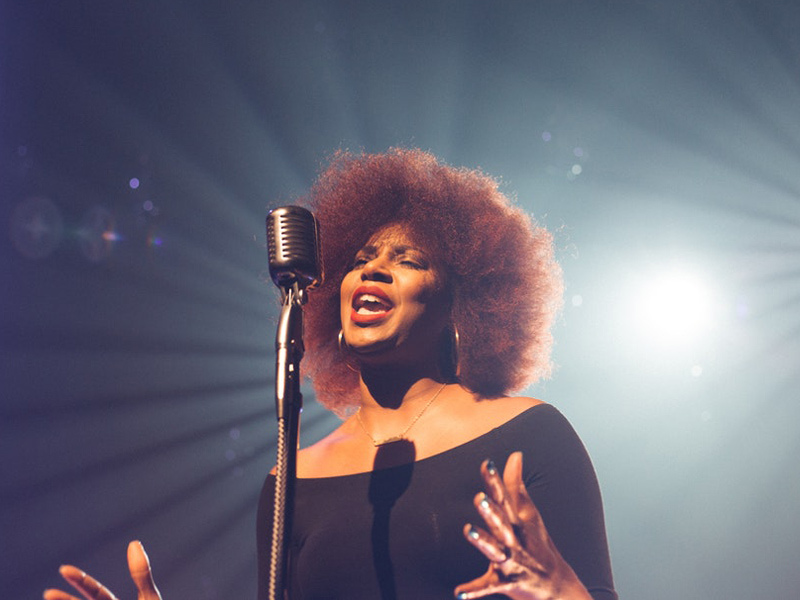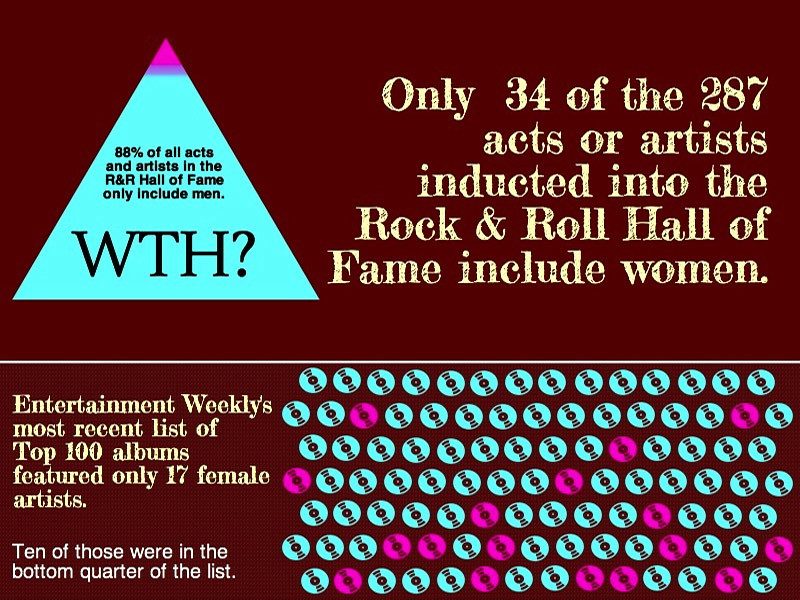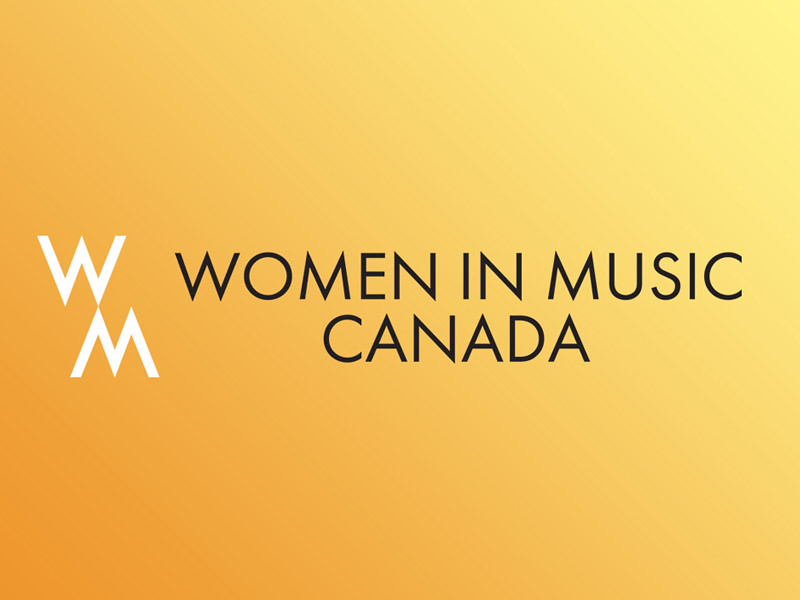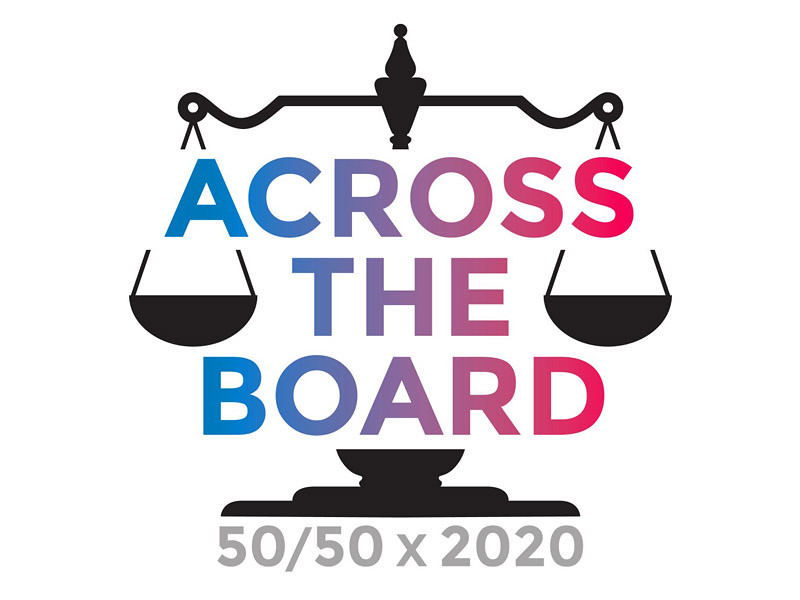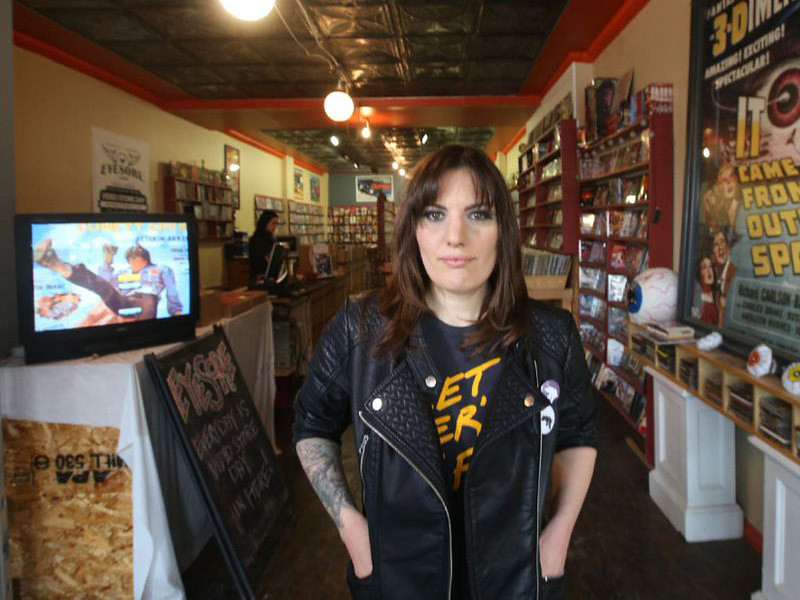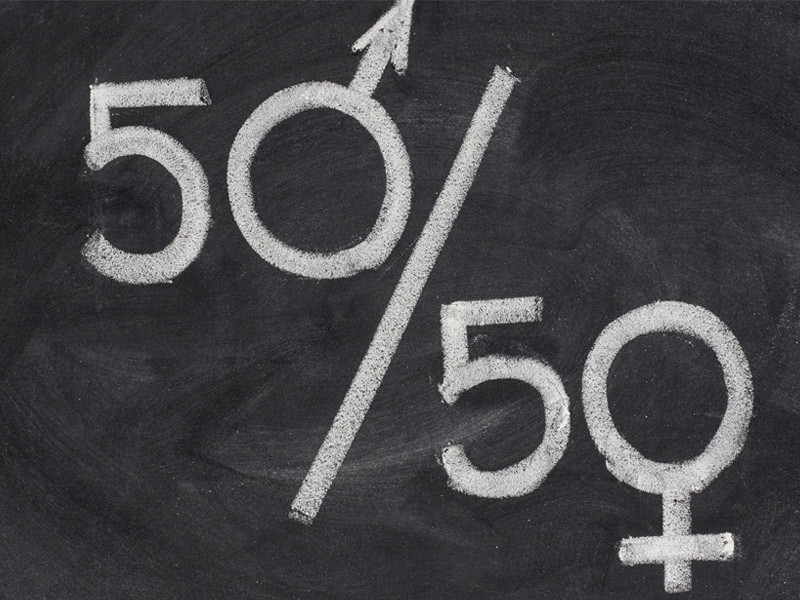|
By Alexandra Few Injustice in various forms has been present in women’s lives for centuries. Whether it be inequalities surrounding gender, race, sexuality, or economic status, there has been, and continues to be, a systemic injustice that has often gone unnoticed or becomes underrepresented in society. This has been particularly evident within the music industry, especially when considering the sexism that occurs, amongst many other concerns. The lack of representation and thus the negative results that go along with that, is immensely evident. A research study conducted by the Anneberg Inclusion Initiative, a medium that studies inclusion across entertainment platforms, found that in 2017, 83.2% of artists were men and 16.8% were women; 2017 marked a six-year low for female artists in popular content; out of the 2,767 songwriters within their study, 87.7% were male and 12.3% were female; out of the study’s 651 producers, 98% were male and 2% were female; and out of the total individuals nominated for a Grammy Award between 2013 and 2018, 90.7% were male and 9.3% were female. Those within the music industry provide the best insight into what is actually occurring. Below are two organizations and a past owner of a female-run record shop that was located in Toronto. They have provided their opinions on what would make women have a “safe space” in music, such as a space where women are represented and respected, and whether that is actually possible. Women in Music Canada is a non-profit organization that aims to foster gender equality in the music industry through the support of women. With events, workshops, performance showcases, and more, Women in Music Canada has a goal to “strengthen the social-economic balance of the music industry by providing professional and creative development, support and resources”. Samantha Slattery - Chairperson and Founder of Women in Music Canada, has worked within the music industry throughout the UK as well as North America, for around two decades. She believes that it is important to have Women in Music and organization alike because “there are certain challenges and barriers specific to women, and female identifying individuals, as such it’s key to provide solutions tailored to this audience”. In regards to these specific challenges, Samantha says: “Most of our members and peers would agree that there’s systemic [and] often unconscious bias, given the historic dominance of men in the industry. There are also economic challenges, in that women often aren’t compensated equally to men and that the majority of family responsibilities, [such as] children, [the] home, parents, etc., continue to fall to women. Providing knowledge, advocacy, training, research, and solutions, are all part of our mandate to address these issues.” When considering if a “safe space” is possible, Samantha does not think it can be achieved completely, but she says: “That certainly doesn’t mean we shouldn’t strive for safer spaces. My hope is that practical solutions that improve the safety of women in the music community and venues will be supported by a social move towards greater safety. Our industry is reflective of society, so until there are cultural changes, there will continue to be challenges.” I don’t think anyone challenges there’s a problem, but certainly it’s important to be clear about the case of them, to create effective measures to mitigate exposure” – Samantha Slattery Across The Board is an advocacy movement that works to promote gender equality across the board of directors in organizations that are within the music industry in Canada. Keely Kemp - Co-Founder, reflects on the driving force behind creating this movement. She says: “I’ll never forget it. February 2017, an email announcement came through about a newly elected Board of Directors of an important music industry association board. Two of eighteen board members were women. I looked at ATB (Across The Board) co-founder Joanne Setterington and said, let’s do something about this.” Keely describes: “Our primary concern is at the board level. For women, there is a lack of opportunity and access to leadership positions on boards, which in turn robs the industry of diverse perspectives that lead to a stronger industry overall”. Kayla McGee - member, Across The Board, describes a personal experience in regards to the challenges and stereotypes that women face in the music industry. She says: “Women face societal barriers when it comes to career advancement opportunities and the practicalities of domestic responsibilities. Speaking for myself here to illustrate through an example: I am a highly competent ED in the music industry. I absolutely thrive on professional development activities. However, I am a single mother with no family in the city. This means that participating in workshops and conferences, both locally and internationally, is a real struggle, as children are often not permitted on site and child care options for me are scarce or too costly. It means that comparatively, my networks are not as developed as my male peers because I have not been able to actively participate in PD activities and networking.” Kayla describes the consequences of this as she states: “Extrapolating from this, it means that I am less likely to be asked to be on a Board without that space being supportive of my needs. This is true for most women/parents in the music industry who are responsible for their children. It means that without women's perspective on boards, most do not have direction from community members who could help create a more inclusive space.” © FanForce | YouTube In regards to making a safe(r) space for women in music, Kayla describes the ways Across The Board has contributed to making a safer space for women in music. She says: “I would say that the movement towards safe or [a] safer space is about creating an environment where people of all walks of life feel welcome, free from harassment in any form, and are accommodated as needed without having to ask for it. This means some things like accessible entryways, gender neutral washrooms, welcoming children or providing childcare at events/workshops etc. It also means having policies and procedures for all stakeholders of the space that ensures people know harassment [of] any kind is not tolerated and that there are fair processes in place to mitigate and deal with incidents. We see ATB as being potentially integral to this effort. If there is gender parity in board membership, it means that the leadership of organizations are potentially more likely to push through the above”. ATB has a 50:50 by 2020 campaign that works toward achieving equality amongst women and men across Board members by the year 2020. Keely mentions: “We also proactively engage with boards to discuss the rationale for gender parity and to provide insight on how to overcome obstacles and engage in intentional planning to achieve gender parity. We have a Board survey in the field right now. By the end of April, we will be able to announce the new stats for 2018, as of Dec 31. We expect a jump from 2017’s 19/81 stat” which is the percentage of women and men on the boards. “I would say that in helping to ‘move the needle’ for gender representation in the music industry's leadership, we are participating in creating a leadership dynamic in the music industry that is inclusive, and safe” -Kayla McGee Lisa Pereira- Female Treble Female Treble was a record store based in Toronto that was owned and operated by Lisa Pereira. Although they no longer have a physical store, Lisa has a great deal of experience in this field that has proven to be male-dominated. There is often a lot of stigma surrounding women when they enter male-owned record shops, with the assumption that women do not know as much about records or even music in general, as men do, which doesn’t always provide women a “safe space” in these stores. Although Lisa never uses the words “safe space” since she says there are very few safe spaces for women. She mentions: “We can work towards preventing harassment and abuse in all areas of music, where once it was commonplace for these things to happen, and was even considered part of the business. Women are starting to communicate more and we warn each other about bad dudes, but it’s not enough.” Lisa describes how nothing changed when she opened Female Treble, as she mentions: “The subsequent press I received for pointing out there were so few female owned shops got a lot of attention and made some people, mostly sh*tty dudes, but hardly any of these people buy records. People who buy records and like particular types of music got it, though.” Lisa describes an instance that clearly illustrates just how prevalent inequality is even within the record community. She says: “I was in a record collecting group online and one of the most common posts I would see is some boring old fart posting a record and being all like, now that the wife’s gone I can listen to this, and it would always be some noisy or avant-garde thing or metal thing that he believed our female minds couldn’t understand.” I think we need women involved in every aspect of music recording and that includes at the shop level, and that will do more for visibility than anything” -Lisa Pereira It is apparent that women in the music industry, in all sectors, are underrepresented and inequality still remains. Helping to raise awareness on this issue is key, and helping out organizations that fight for this issue is a great way to make a better future for those within the music industry.
|
Recent PostsCategories
All
Archives
December 2021
|
|
GET THE APP!
Listen to VIBE 105 anywhere you go!
|
OUR STATION
|
TUNE IN RADIO
|
STAY CONNECTED
|
Copyright © 2021 Canadian Centre for Civic Media and Arts Development Inc. Except where otherwise noted, presentation of content on this site is protected by copyright law and redistribution without consent or written permission of the sponsor is strictly prohibited.


